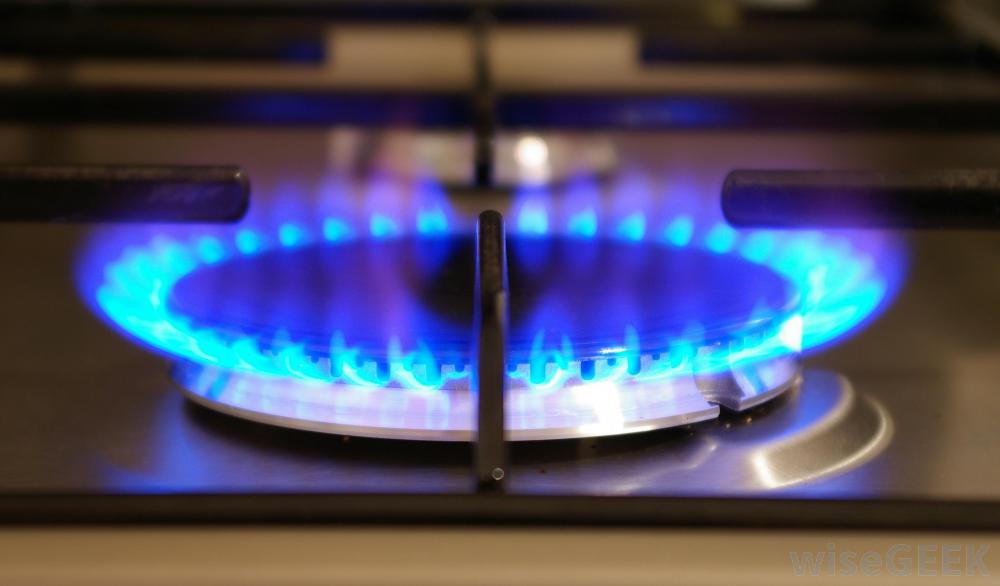The Establishment's Green Energy Obsession Will Ruin Britain
News & Social Media / Post
How the establishment brought the National Grid to the brink of oblivion

Responding to the cost of living crisis, Labour has said it would impose a windfall tax on North Sea oil and gas producers. The £6.6bn plan would include removing VAT on domestic energy bills for a whole year, as well as expanding and increasing the warm homes discount for those most at risk.
The producers would be forced to contribute £1.2bn to help fund the proposals, through a year-long increase to their corporation tax of 10 percentage points. Shadow chancellor Rachel Reeves blamed ministers for creating a “price crisis” by responding to surging wholesale energy costs with “dither and delay” as she detailed the plan.
This is absolutely classic Labour. In the mind of the average Labour drone, energy costs are high because of pinstriped greedy fatcats exploiting the poor. It’s a wholly cartoonish worldview that plays on the stupidity of your average socialist. It’s more opportunistic and populist than anything the right is accused of. It’s true that producers have benefitted from the crisis, but the thing about energy taxes of any kind is that it’s always the billpayer who pays for it.
This plan really just smacks of robbing Peter to pay Paul, failing to address the structural problems in the sector. To do that you have to examine how we got here in the first place – and this goes right back to the Blair years.
Without creating market distorting subsidies absolutely nobody would have built wind turbines. So they created a subsidy mechanism. A very generous one. But that still wasn’t enough to meet the insane renewables target, so they set about making all other forms of energy production more expensive by piling on more taxes. The EU Large Combustion Plant Directive saw us tear down power stations across the country, without thinking about what would replace them.
Having created an energy gap of their own volition, they had no choice but to build new Combined Cycle Gas Turbines. They’re relatively quick to build, reasonably efficient, but more importantly, you can quickly ramp them up and down to cope with sudden changes to wind speeds. Other combustion plant has to be run at a minimum level to maintain efficiency. But even then, a method of compensation was required to pay gas plant to dial back when the wind was blowing. Plant sitting idle with the pilot light on is is lost profit.
And then, as most of us now understand (apart from establishment politicians) there are times when the wind does not blow, meaning that every MW of installed capacity needed corresponding backup capacity (ie. more plant sitting idle). That then spawned a parasite sector of backup energy supply which consists of diesel generators dotted around the country (Short Term Operating Reserve). So much for green energy.
It was obvious at the time that this was an insane policy and Ukip warned about it at the time. All the same, David Cameron chose to double down on the green crap as a means to detoxify the image of the Tory party. That’s what cost him an outright majority in 2010. Ukip made sure of that.
It was about this time when the media was beginning to notice what an obvious scam renewable energy was, and campaign pressure secured an effective ban on more large scale onshore wind. But politicians like the phoney notion of green jobs and saw the wind industry as a means of regeneration. Levelling up dogma is nothing new. So they doubled down on offshore wind, increasing the costs, and increasing the transmission distances, thereby increasing transmission losses.
This didn’t stop the green lobby lying through their teeth about wind being the cheapest form of energy, often making fantastic claims about the amount of energy they supplied. But this has always been a lie. They quoted the installed capacity over their actual production output, which turned out to be only fraction. As low as ten percent in some instances.
By then, an energy crisis was made an absolute certainty, having made ourselves wholly reliant on gas. We’ve seen spikes like this before but these were regulated by our sizable but ageing gas storage facilities. In 2011, the energy and climate change select committee noted that the UK consumed about 100 billion cubic metres (bcm) of gas per year, but only had the storage capacity equivalent to a little over four percent of this.
In the past, its report said, the UK could meet changes in demand by increasing or decreasing output from the North Sea and East Irish Gas fields, however, “these offshore fields are rapidly depleting and the market is losing its ability to respond flexibly”. The committee thus observed that “many witnesses [that gave evidence at the inquiry] thought that the UK probably needed to double the amount of gas storage it currently has (about 4.4 bcm) by 2020”.
Yet, on 4 September 2013, after a review of the storage issue, in a written statement to the Commons, Ed Davey, the then energy minister turned away from the idea of the government encouraging more provision, saying: “the costs outweigh the benefits”, dismissing the prospect be declaring: “we see no clear case for a further intervention in the gas market”. Supporting his boss was minister of state, Michael Fallon, who in a press release stated:
It is up to industry to get on and invest in building gas storage, and they are doing so. Two gas storage facilities have recently been built and two more are under construction.” Industry is already investing in building new gas storage facilities: Two storage facilities were opened at Aldbrough, Yorkshire in November 2012, and Holford, Cheshire in February 2013. Two more facilities are under construction at Stublach and Hill Top Farm, both in Cheshire, and will be completed in early 2014.
Thus, he complacently declared: “Once these facilities are complete, the capacity of UK storage facilities to meet peak demand will have doubled since 2000”. Nevertheless, Davey was challenged in a debate later that day by Labour’s Joan Walley, who opined that it was: “absolutely essential that the Secretary of State reconsiders his Department’s stance on gas storage”, telling him, “We urgently need a change of policy on extra gas storage”. Davey’s response was still dismissive:
We looked at gas storage in huge detail to see whether there was a case for Government intervention, but we found that an awful lot of gas storage was being built with more modern technology, which means that the gas can be produced and brought into the pipeline network much more quickly. We have looked at that matter in detail and we do not intend to review it.
Davey was to repeat his views in a speech on energy security 10 June 2014, when he declared: “Where the market is functioning well, and intervention would add unnecessary costs to consumers, the right thing to do is to stay out – not intervene – the approach we chose on gas storage”. That had become the government’s definitive and unchanging policy on gas storage, surviving through in to Cameron new 2015 government, the man who in 2006 had travelled to the Arctic to hug a husky.
Fast forward to today and Britain does not have the storage capacity to offset spikes in gas prices which has seen the entire gas reseller sector facing bankruptcy. Without massive government loans there’s no way for them to survive. Meanwhile, our policy of shutting down viable baseload generation has continued, and no new gas-fired power plants are being built in Britain because the tax regime and price controls mean it’s not worth their while. Not forgetting the various green taxes that inflate our bills by nearly forty percent.
Our current predicament is the result of two decades of green inspired idiocy by successive governments, and though Lib Dems and Labour now complain, they had an equal hand in brining us to this juncture, and were they in power over the last decade they wouldn’t have done a single thing differently.
That now means there is no short term or even mid-term fix. They can sod around with taxes that deter investment, and tinker with VAT but this goes no way toward resorting sanity to a dysfunctional electricity market. For as long as all parties are agreed we must go ahead with Net Zero, there is no reason to expect remedy from the fools in Wesminster. The most they can muster is more madcap insulation schemes which are simply not appropriate for British housing stock.
This begs the question of how you even begin to fix a system this badly degraded. Put simply, they can’t. We have to watch watch it fail, and then try to mend it after it has completely broken. But it won’t be pretty. You see, to fix this, political reform must come first. Westminster can’t solve this problem because Westminster is the problem.
Though Britain is in a much better position outside of the EU, being that we are no longer tied to the EU’s insane energy policies, Britain must also reject the madness of the Paris climate accords and shut down the avenues by which globalist NGOs can interfere with our energy policy through the courts. If we are to save Britain from economic oblivion then we need a complete overhaul of the legal system and purge the green NGOs from all branches of government (and the energy sector itself). They’re as deeply embedded as Stonewall.
In the interim Britain must ramp up gas production by any means necessary, and look to our domestic coal reserves. Modern coal burners can burn coal more cleanly and efficiently than ever before. In the longer term we need a coherent nuclear strategy – but we must move beyond the big is beautiful mentality. Small modular reactors are the way to go. It’s time to ditch renewables entirely. It doesn’t work and we can’t afford it.
Depressingly, there is no short term relief. One way or another we are all going to pay for the the virtue signalling narcissism of our politicians over the last twenty years and you can’t expect any different unless you’re willing to vote differently. The other parties won’t say it, but Ukip will. There is no climate emergency but at this rate there will be an energy emergency and a heating emergency.
Decades of policy neglect have brought us to the brink of rolling blackouts that will see heavy industry move abroad, and will see us paying through the nose to pay factories to shut down during peak demand times. We are only one big freeze away from a terminal outage. Our politicians have set us on a course for economic suicide.
One of the more compelling reasons to leave the EU was to free ourselves of the green groupthink of Brussels and allow ourselves a free hand in energy policy, but it’s now clear that Boris Johnson has no intention of using those new powers, or diverging from the EU insanity. The political class, including Richard Tice’s Reform Party, still thinks the answer is more windmills. The economic consequences for the British people stand to be a magnitude worse than even the bleakest remainer predictions for Brexit. Only Ukip can turn this around.
Recent National News











